
What is the end of the world?
I recently had someone on Twitter accuse me of “alarmist propaganda” – presumably “Right Wing,” although I don’t believe they said that. But what other kind is there? After all, if you wish to believe the modern liberal viewpoint, the 60s could never have happened. No way, were there ever, or have there ever been, left-wing alarmists.
But, in the spirit of being a reporter – or at least a retired one – I looked at my own beliefs and examined my motives and weighed and measured the scope of my alleged bias.
It’s necessary to do this, because the place with the deep hole and the pointy sticks at the bottom, is often difficult to see. It lies hidden amongst the leaves of supposed objectivity – fallen leaves from a season long past. The pitfall is just out of sight, sometimes because we refuse to see it and other times because we’ve been conditioned not to.
But it’s there. And the greatest among us and the least among us, have decorated its’ depths with their bones.
So what is the end of the world?
If my bias exists, it is there due to experience and not some half-witted imagination, or the dull-witted excuse that I am listening to some experts or advisors. I have no experts and no advisors, except for the English Bulldog, and his response to everything is either bleary eyes, or an unapologetic, breaking of wind. Either way, and either end of the dog, proves to be not much help.
But I have some experience with endings. Witness for a moment the dark, ruined hallways of a parliament building in Mogadishu. Their government had collapsed just two years before the arrival of U.S. troops in country. Yet, it only took two years for drugs, corruption, thievery and murder to reduce the country to a wasteland. The huge parliament building and its ransacked interior had even had the electrical wires ripped out of the walls. Discolored government papers and letters and postcards calling for the release of political prisoners likely long dead, littered whole hallways. Members of my unit waded at times – knee deep in them.
What hadn’t been looted or strewn about, had been burned or just abandoned. Not even rats or insects found the structure useful. For the modern, 20th century government that had occupied the complex only two years before, it had certainly been the end of the world. They saw it coming.
I still have part of a document, recovered from the presidential palace, which describes the days before the fall. It was written by an intelligence operative in the Somali Sahan, for the despot Siad Barre. It details the corruption and drug trafficking, which was destroying the country. It turned out to be correct, not that Barre could have done anything about it. Like so many dictators, he was long past useless. He had taken control of the country in 1969 and had simply become dangerous, hated and finally, ousted and fleeing by 1992. He died January 2, 1995 at age 74 having attempted what so many governments attempt: to have and hold on to power, at all costs. Witness for just a moment – through my eyes and memory – the destruction left behind. Millions dead. A society dissolved. A people devastated and hungry and sick and busy trying to kill each other over food, meager possessions, drugs, weapons or simply no reason any sane human could imagine.
It was the end of the world.
Now, witness the sanitary hallways of a Department of Veterans Affairs hallway half a world away, in New Mexico. The floor in question has been renovated and is fresh and clean and open. The people working there are courteous and do their best amidst a convoluted health care system serving an exploding number of veterans. See the small exam room with its’ fresh paint and modern, but sparse furnishings. The walls are paper-thin. Despite being behind a closed door, the conversation from the next room is as clear as if they were sitting next to you. You are alone, waiting for your own conversation, but despite trying to focus on something else – anything else – you can’t help but hear the news being delivered to the unseen and unknown patient next-door. He has cancer. It may be treatable, but there are realities to face, and those realities could mean the end of the world.
I have been in other rooms in that hospital – in critical condition with a monster called a “pulmonary embolism” in my chest. Death came for me once, and I saw something beautiful. I have seen what waits for us.
But what do I really know about it? What can some guy in the desert Southwest know at all?
I know that what I am seeing at work in our own government, suggests the possibility, however remote, that we could be facing our own Somali-style ending. I can feel the bad news coming. I know the deliverers of it are just next-door, in an identical room; and despite the clean, antiseptic surroundings, I know this is all just thin veneer. The experts and glossy people can give you all the numbing soporifics you can handle, but it won’t remove the effects of reality when it finally comes knocking.
Everything can be ripped out and ripped away in a moment.
It can end.
Look at this post for more - including a copy of a postcard retrieved from the destroyed parliament building...
http://rog99.blogspot.com/2009/08/room-101-theft-of-freedom.html



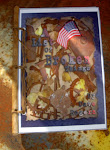

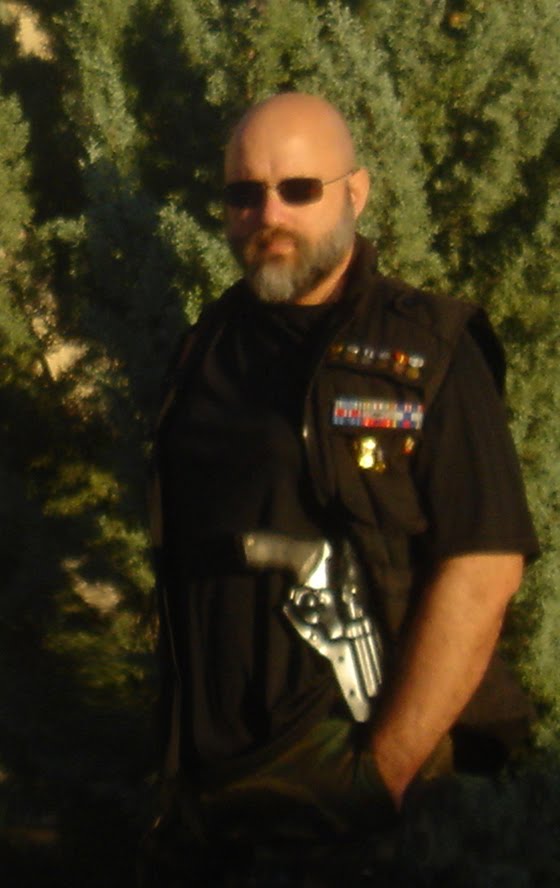
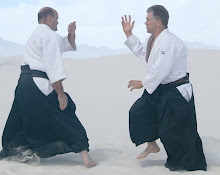







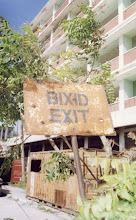
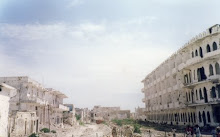


Expression is the window of and to the soul. Your reflections spoke of a personal experience. Is this not what literature also consists of?
ReplyDeleteEndings reminds me of Cold War stories. Scratching my head. From my experience people often do not want to face bleak realities, so they simply reject them. Its as though they have yet to experience their own life thread which they dangle from. Yet I know many have become conditioned to except horror and pain yet become non-feeling, other than to be enraged within their own emotional chaos.
Were living in bleak times, yet many of us do push ahead refusing to submit to the never ending control. Your writings do weigh heavy. Yet to me there is a gentle pull to remind people how much is at stake, while at the same time, nudging people along. Readers take from the writings what they will, ahh the artist yet struggles? Just so you know its a form of odd propaganda to me when a menu encourages one to order oysters when they had no intent to do so. Oyster Rockefeller, yum.